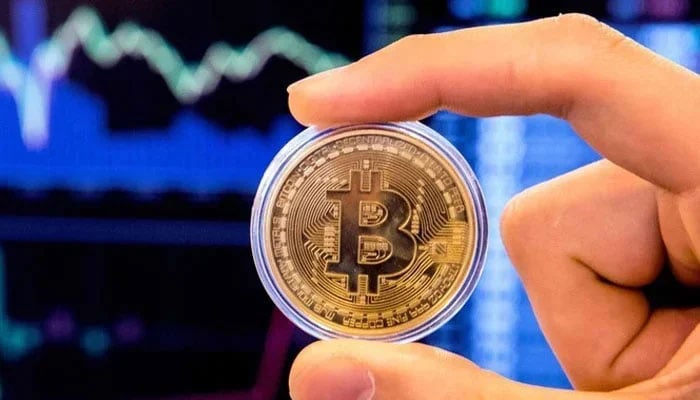Tokenisation
Philippines is integrating cryptocurrencies to streamline its $36bn remittance industry
As our national debate remains fixated on containers, dharnas, civil-disobedience and other zero-sum political theatrics, the world around us is rapidly transitioning to a new era defined by tokenization. While we are caught up in cyclical political crises of our own making, nations around us are leveraging tokenization to unlock new economic opportunities and attract billions in investments.
President-elect Trump is positioning America to be the global crypto capital. Dubai has attracted $35 billion in crypto assets. Nigeria is piloting the e-Naira to promote financial inclusion. Kenya is utilising blockchain in its land registry system. The Philippines is integrating cryptocurrencies to streamline its $36 billion remittance industry. El Salvador has made Bitcoin legal tender, while Bhutan holds $1 billion in Bitcoin, equivalent to one-third of its annual GDP.
Trump's vision relies on tokenization. Dubai’s ability to attract billions hinges on tokenization. Nigeria’s e-Naira is built on tokenization. Kenya is leveraging tokenization for its land registry. El Salvador’s Bitcoin adoption is all about tokenization, and Bhutan’s Bitcoin success wouldn’t have been possible without tokenization.
Tokenization is the digitisation of physical assets. Tokenization is the process of converting real-world assets into digital tokens on a blockchain. These tokens then represent ownership or a claim to the underlying asset.
Government functions are being tokenized. Health records are being tokenized. Indonesia is looking at tokenizing infrastructure projects as a means of attracting foreign investment. India is looking at tokenizing supply chain assets, such as inventory and invoices to unlock liquidity. Vietnam, Thailand, Rwanda, Senegal, Ghana, Cambodia and Honduras are all into tokenizing land titles to secure and immutable land titles, reducing land disputes and facilitating property transactions.
Real estate, gold, silver, oil, stocks, bonds, education credentials, cars, boats, renewable energy certificates and even voting rights are all being tokenized. Tokenization is reshaping the global economy. Tokenization is democratising access to assets. Tokenization is enhancing financial inclusion. Tokenization is fostering innovation. Tokenization is unlocking new opportunities and tokenization is driving global growth. Tokenization is becoming the backbone of the global economy.
The Securities and Exchange Commission of Pakistan (SECP) must develop clear and concise regulations that outline the legal framework for tokenization activities, including issuance of digital assets, token sales and offerings and consumer protection measures. The SECP must create a conducive regulatory environment. The SECP must foster innovation. The SECP must facilitate foreign investment.
On a related note, President-elect Donald Trump recently criticised SEC Chairman Gary Gensler's regulatory approach, particularly towards tokenization, and stated that he would fire Gensler on his first day in office.
Tokenization is shaping a future where assets such as real estate, gold, silver, oil, stocks, bonds, education credentials, cars, boats, renewable energy certificates and even voting rights will be converted into digital tokens, enabling seamless trading and ownership transfers across borders.
The question remains: will Pakistan seize this opportunity to become a player in the tokenized economy, or remain fixated on containers, dharnas, civil-disobedience and other zero-sum political theatrics?
The writer is a columnist based in Islamabad. He tweets/posts @saleemfarrukh and can be reached at: farrukh15@hotmail.com
-
 Jake Humphrey Shares The Powerful Meaning Behind His Wrist Tattoo
Jake Humphrey Shares The Powerful Meaning Behind His Wrist Tattoo -
 Matthew Lillard Weighs In On His Return To The 'Scream' Franchise After Decades Of Persistence
Matthew Lillard Weighs In On His Return To The 'Scream' Franchise After Decades Of Persistence -
 Travis, Jason Kelce Share Blunt Dating Advice For Men: 'She's Gonna Hate You'
Travis, Jason Kelce Share Blunt Dating Advice For Men: 'She's Gonna Hate You' -
 Australia To Launch First High-speed Bullet Train After 50-years Delay
Australia To Launch First High-speed Bullet Train After 50-years Delay -
 Meghan Markle Turns To Desperate Bids & Her Kids Are Her ‘saving Grace’: Here’s What They’ll Do
Meghan Markle Turns To Desperate Bids & Her Kids Are Her ‘saving Grace’: Here’s What They’ll Do -
 King Charles Gives A Nod To Sister Anne's Latest Royal Visit
King Charles Gives A Nod To Sister Anne's Latest Royal Visit -
 Christian Bale Shares Rare Views On Celebrity Culture Urging Fans Not To Meet Him In Person
Christian Bale Shares Rare Views On Celebrity Culture Urging Fans Not To Meet Him In Person -
 Ariana Grande To Skip Actor Awards Despite Major Nomination
Ariana Grande To Skip Actor Awards Despite Major Nomination -
 North Carolina Teen Accused Of Killing Sister, Injuring Brother In Deadly Attack
North Carolina Teen Accused Of Killing Sister, Injuring Brother In Deadly Attack -
 Ryan Gosling Releases Witty 'Project Hail Mary' Ad With Sweet Reference To Eva Mendes
Ryan Gosling Releases Witty 'Project Hail Mary' Ad With Sweet Reference To Eva Mendes -
 Teyana Taylor Reveals What Lured Her Back To Music After Earning Fame In Acting Industry
Teyana Taylor Reveals What Lured Her Back To Music After Earning Fame In Acting Industry -
 Prince William Shows He's Ready To Lead The Monarchy Amid Andrew Scandal
Prince William Shows He's Ready To Lead The Monarchy Amid Andrew Scandal -
 Lux Pascal Gushes Over Role In Tom Ford's 'Cry To Heaven': 'I Just Wanted To Be Part Of This Picture'
Lux Pascal Gushes Over Role In Tom Ford's 'Cry To Heaven': 'I Just Wanted To Be Part Of This Picture' -
 Near-blind Refugee Found Dead In Buffalo After Release By US Border Patrol
Near-blind Refugee Found Dead In Buffalo After Release By US Border Patrol -
 Firm Steps In Forcing Andrew’s Hand: ‘Can No Longer Keep A Promise'
Firm Steps In Forcing Andrew’s Hand: ‘Can No Longer Keep A Promise' -
 Kenyan Man Accused Of Recruiting Men To Fight In Ukraine
Kenyan Man Accused Of Recruiting Men To Fight In Ukraine




